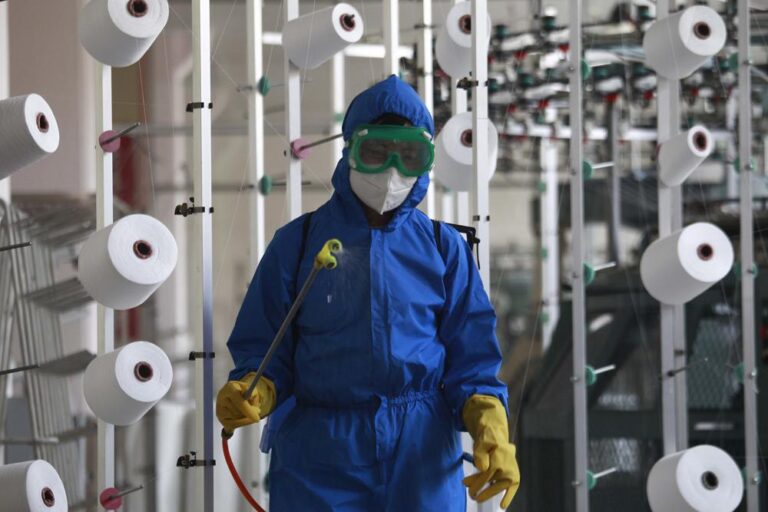
(AP) — North Korea said Wednesday more than a million people have already recovered from suspected COVID-19 just a week after disclosing an outbreak it appears to be trying to manage in isolation as global experts express deep concern about the public health threat.
The country’s anti-virus headquarters announced 232,880 new cases of fever and another six deaths in state media Wednesday. Those figures raise its totals to 62 deaths and more than 1.7 million fever cases since late April. It said at least 691,170 remain in quarantine.
Outside experts believe most of the fevers are COVID-19 but North Korea lacks tests to confirm so many. The outbreak is almost certainly larger than the fever tally, since some virus carriers may not develop fevers or other symptoms.
It’s also unclear how more than a million people recovered so quickly when limited medicine, medical equipment and health facilities exist to treat the country’s impoverished, unvaccinated population of 26 million. Some experts say the North could be simply releasing people from quarantine after their fevers subside.Globally, COVID-19 has killed about 6.3 million people with the true toll believed to be much higher. Countries with outbreaks of a similar size to North Korea’s official fever tally have confirmed thousands of deaths each.
World Health Organization Director-General Tedros Adhanom Ghebreyesus said Tuesday that North Korea has not responded to its request for more data about its outbreak.
Before acknowledging COVID-19 infections for the first time last week, North Korea had held to a widely doubted claim of keeping out the virus. It also shunned millions of vaccine shots offered by the U.N.-backed COVAX distribution program, likely because of international monitoring requirements attached to them.
North Korea and Eritrea are the only sovereign U.N.-member countries not to have rolled out vaccines, but Tedros said neither country has responded to WHO’s offers of vaccines, medicines, tests and technical support.
“WHO is deeply concerned at the risk of further spread in (North Korea),” Tedros said, also noting the country has worrying numbers of people with underlying conditions that make them more likely to get severe COVID-19.
WHO emergencies chief Dr. Michael Ryan said unchecked transmission of the virus could lead to new variants but that WHO was powerless to act unless countries accepted its help.
The North has so far ignored rival South Korea’s offer to provide vaccines, medicine and health personnel, but experts say the North may be more willing to accept help from its main ally China. South Korea’s government said it couldn’t confirm media reports that North Korea flew multiple planes to bring back emergency supplies from China on Tuesday.
North Korean officials during a ruling party Politburo meeting Tuesday continued to express confidence that the country could overcome the crisis on its own, with the Politburo members discussing ways for “continuously maintaining the good chance in the overall epidemic prevention front,” the official Korean Central News Agency said Wednesday.






